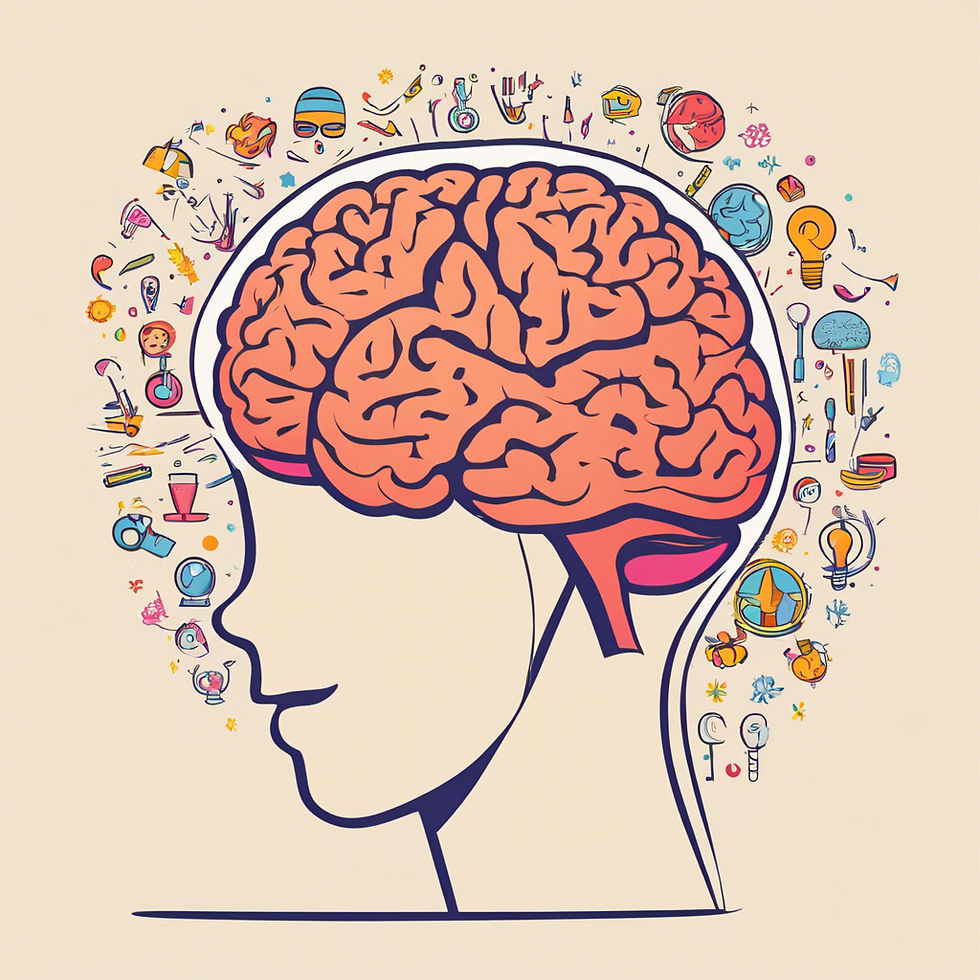Gender Bias in Teen Mental Healthcare: Why Boys Get Overlooked
- Erica Cornelius
- Jun 14, 2023
- 3 min read
Updated: Nov 14, 2023

These days, people are beginning to agree that mental healthcare is important. But the conversation mostly surrounds adults. When it does focus on teenagers, it does so mostly on girls. Boys, however, might be brought up in conversations about ADHD or autism. Anything else gets overlooked.
But teenage boys struggle too. They can have depression and anxiety and OCD. And yet, their mental health is overlooked. Boys are more likely to die by suicide than girls, yet they don’t seek treatment, or if they do, they don’t always get the help they need.
This gender bias is real and it hurts teenage boys. But if we want to overcome this bias, we must first find out why it exists.
Difference in Symptoms
Symptoms look different for everyone, it’s true, but sometimes symptoms are different in boys in ways others can’t recognize. It can be hard for people to notice when boys struggle with depression, for example. Instead of the typical low moods we expect, boys may instead feel angry and irritable. They’ll act more aggressively, which leads to punishment instead of mental healthcare.
While irritability is considered a symptom of depression and anxiety, it’s not spoken of to the same degree as low moods or persistent worries, which makes it far easier to dismiss. This difference in symptoms between boys and girls makes it easier to miss the signs of their struggles.
Medical Bias
There is unfortunately some bias within the mental healthcare system. In some cases, even when all teenagers present the same symptoms of depression, boys are less likely to get diagnosed. This depends heavily on the reason why teens seek counseling. As far as depression and anxiety are concerned, teenage boys’ struggle with these conditions can sometimes go unnoticed even by professionals. That’s why it’s important to find the right people to help them.
Social Stigma
Society is not always kind to teenage boys. There are a lot of expectations placed upon them: unwavering stoicism and strength. But no one can live like that all the time. They’re outright discouraged from expressing any distress. If they do, then they’re dismissed and told to toughen up. There is no place for distress in a teenage boy’s life.
Mental healthcare carries its own stigma. People with mental health issues can wrongly be seen as weak or broken. If they see a counselor, those around them might assume there’s something deeply wrong with them. Stigma is heavy, and teenage boys have to bear its weight.
Reluctance to Seek Help
With all that stigma, is it really surprising that boys are less likely to seek professional help than girls? When you feel judged, you don’t ask for help. You put up a front and pretend nothing’s wrong until you can’t deny it anymore. But even if teenage boys do seek help, they might not know how to talk about their distress. They’ve spent their entire lives being discouraged from expressing it. How would they even begin to explain how they’re feeling if they’re never taught how to verbalize their emotions?
Dismantling the Gender Bias
Teenage boys deserve good mental healthcare. They deserve to feel supported, to be encouraged to share their emotions and have them validated. This isn’t something that will change overnight, but it’s something we can all work to change.
And if you know or are a teenage boy who is struggling with mental health issues, then finding a counselor is your best bet. A lot of mental health problems don’t go away on their own. Even if they did, there’s nothing wrong with seeking help. You don’t have to struggle alone. Please feel free to reach out to see if therapy might be the right fit for you. You can also check out our Counseling for Teens page for more information.



Comments